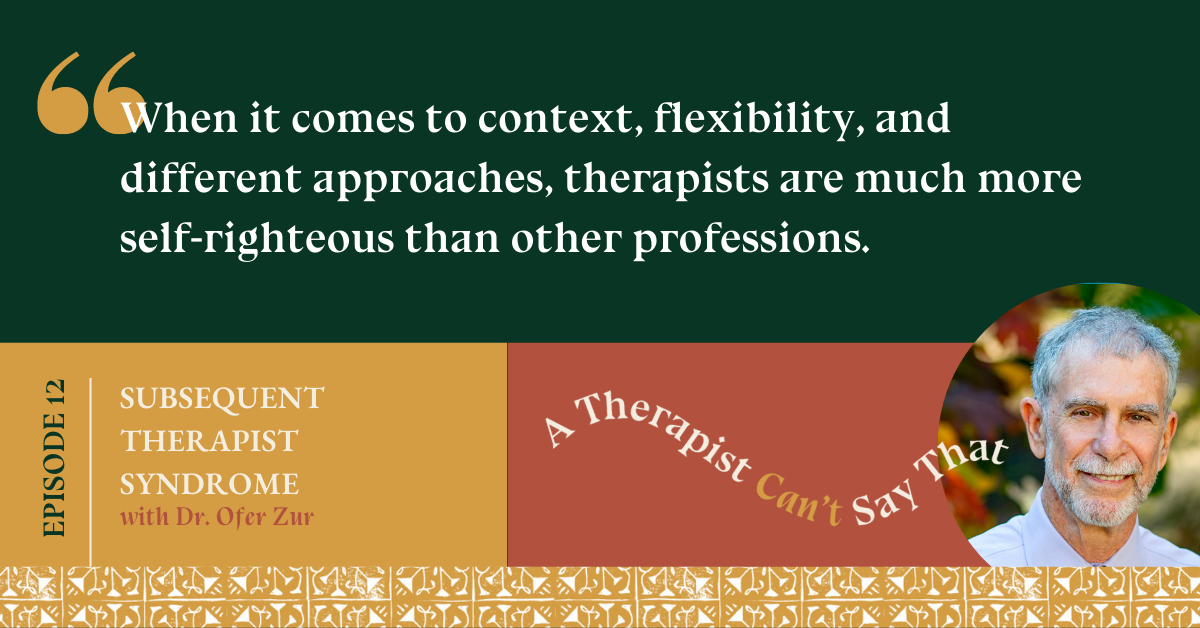Season 1 Ep 12: Subsequent Therapist Syndrome with Dr. Ofer Zur
Imagine you’re sitting in your office with a new client and the intake conversation turns to their previous therapist and they toss off a piece of information or a comment about something that their previous therapist did or said that really concerns you, maybe even alarms or disturbs you.
How would you react? What would you do?
If it occurred to you that might encourage your client to report their former therapist to the licensing board, you are far from alone.
Today, I’m talking with Dr. Ofer Zur about what he calls subsequent therapist syndrome, a surprisingly common phenomenon where a client makes a licensing board complaint against a prior therapist based on the advice or encouragement of their new therapist.
Dr. Ofer Zur is a psychologist, ethics professor, and consultant on ethical, clinical, and forensic matters in psychotherapy. He has a great deal of experience with the board complaint process and all of the reasons why therapists get embroiled in it, and the various outcomes of the process.
We’ll discuss a variety of factors that influence our perceptions of prior therapists, the interprofessional dynamics at play that make it so hard for therapists to simply say to each other, “I disagree,” and how context complicates our perceptions of ethicality.
Listen to the full episode to hear:
Why context and relationship are vital to understanding the actions of a prior therapist
The enormous influence of risk management on perceptions of clinical standards and minimizing harm
How the wide spectrum of theoretical orientation makes therapists more likely to see each other as negligent or unethical
Why it’s worth it to connect with your clients’ prior or next therapists
Learn more about Dr. Ofer Zur
Learn more about Riva Stoudt:
About Riva
Riva Stoudt is a therapist based in Portland, Oregon. When she's not working with patients, she likes to talk about all the things a therapist isn't "supposed" to talk about.


